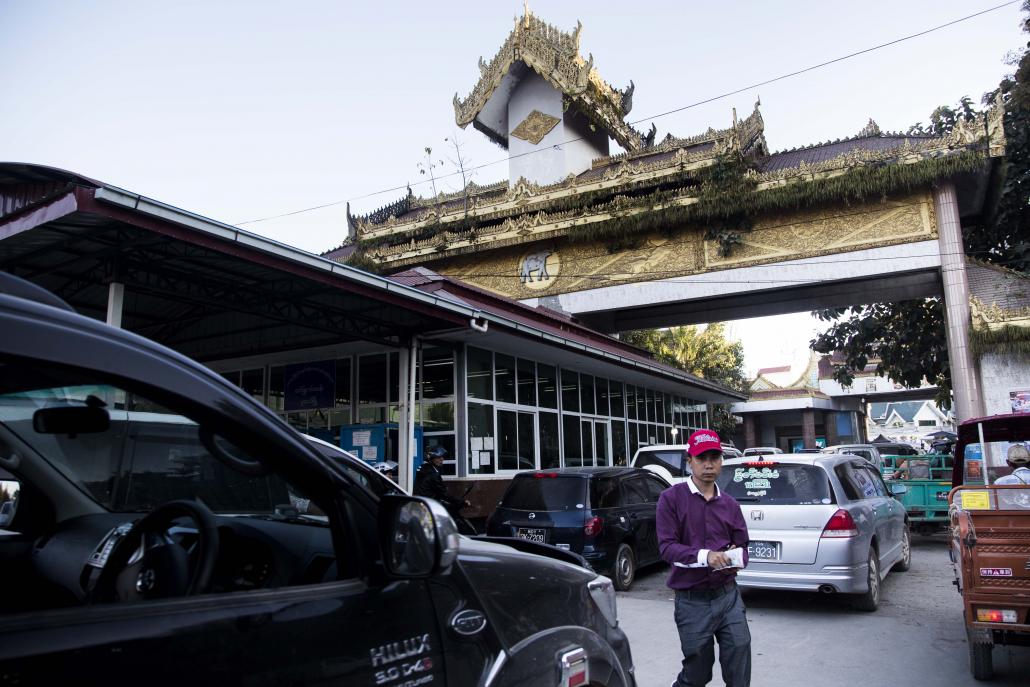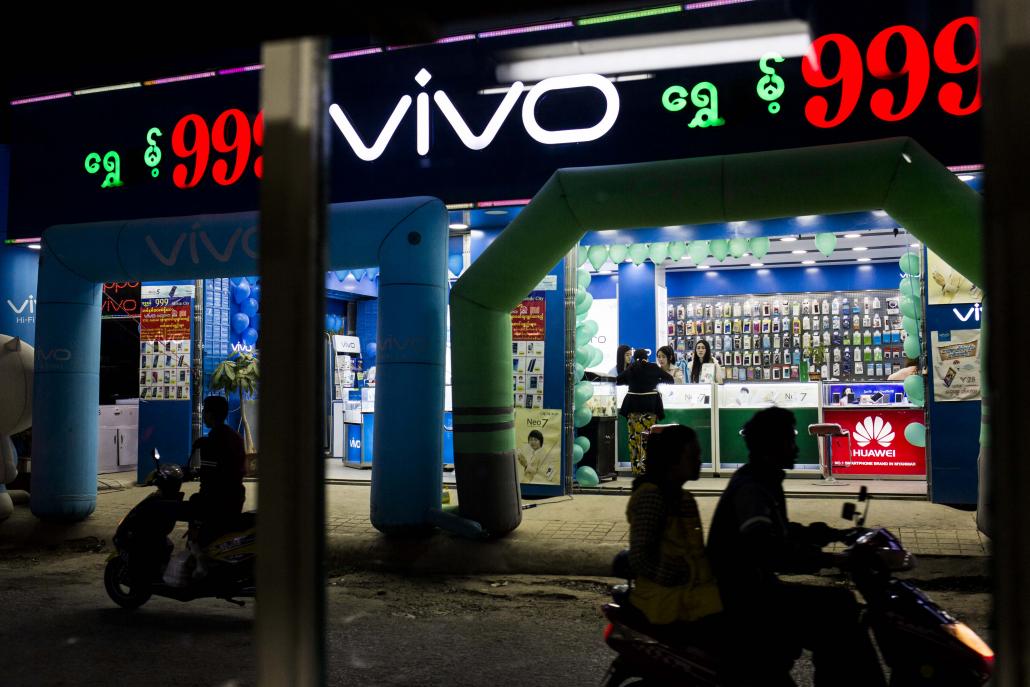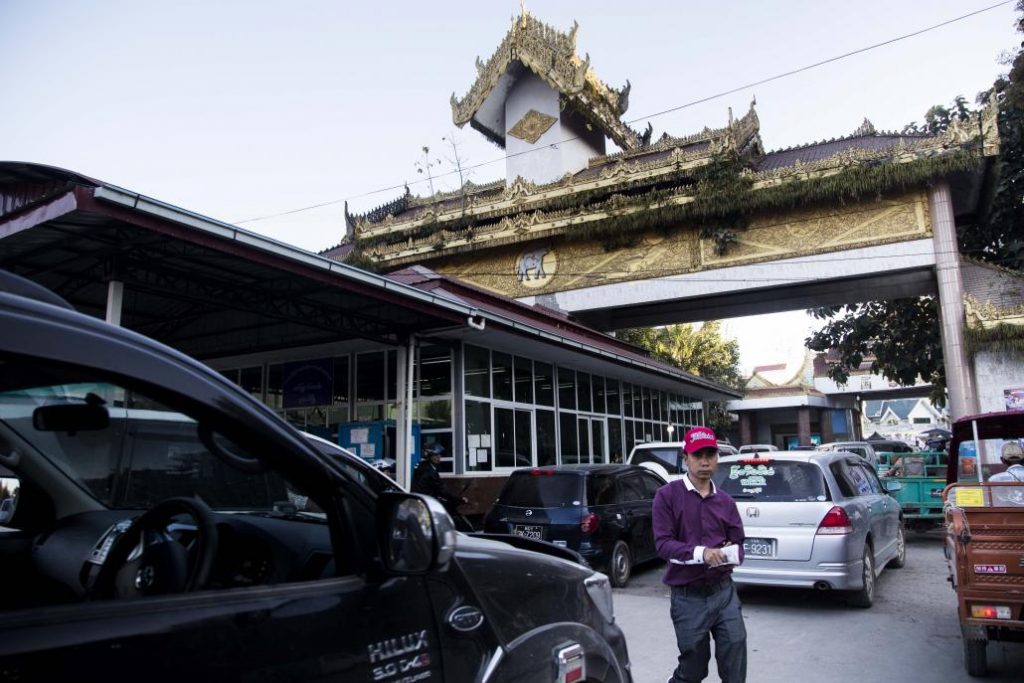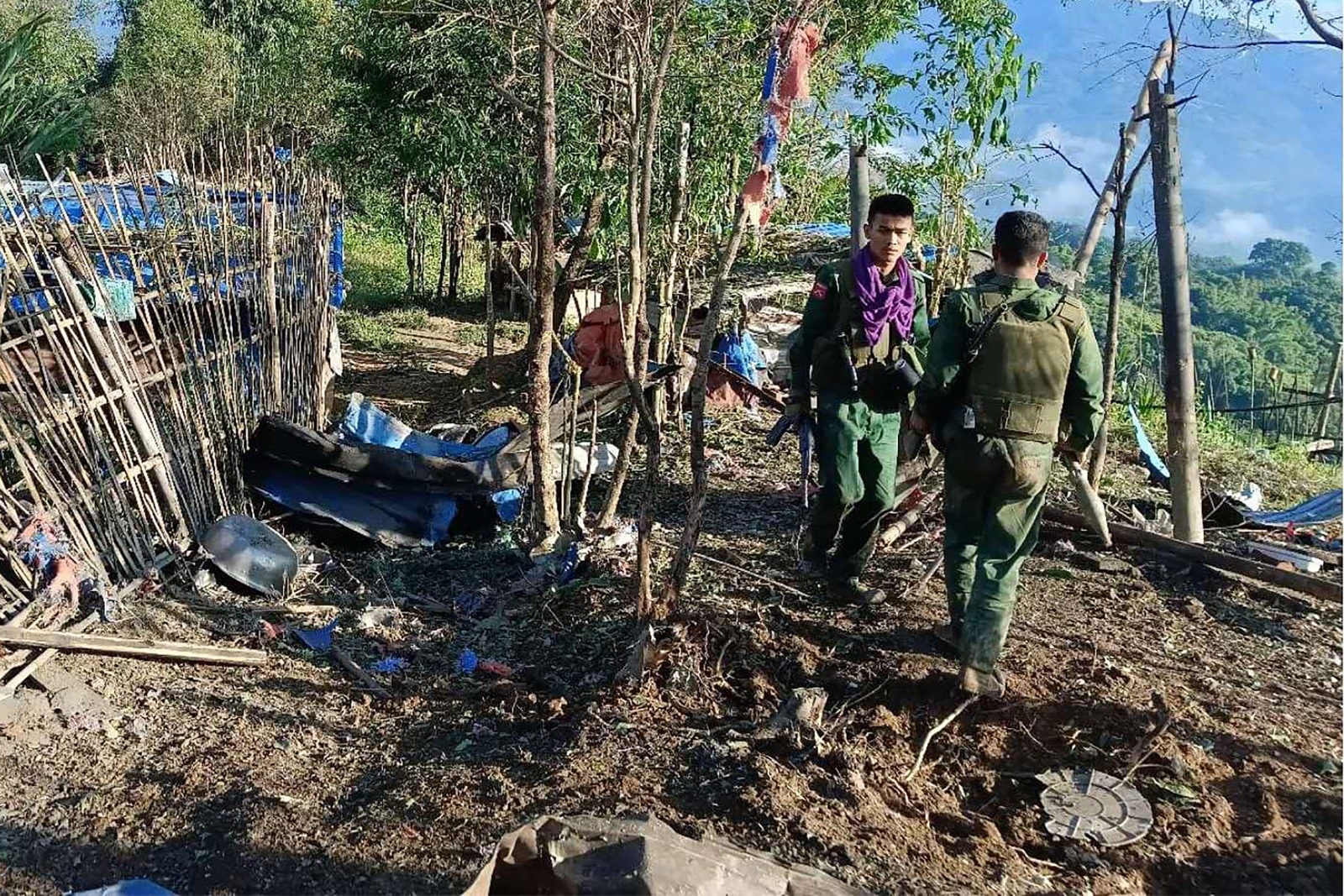The business community in the bustling border town of Muse is dominated by Chinese entrepreneurs and their families, who rather talk money than politics.
By ANN WANG | FRONTIER

Ann Wang / Frontier
“In my opinion Muse is the safest place in all of Myanmar to do business,” said Chinese businessman Zheng Mu Gang, 31. Mr Zheng owns four cellphone shops in Muse, a border town in northern Shan State on the main trade route with China.
“Muse is one of Myanmar’s main economic hot spots,” said Mr Zheng, who has been living in the bustling border trade town for four years. “If there was conflict here, the whole Myanmar economy would be ruined. That’s why I think Muse is the safest location in Myanmar and is part of the reason why I chose Muse to start my business.”
The Nikkei Asian Review has reported that Myanmar’s official trade through Muse reached US$3.8 billion in the 2013-2014 fiscal year, just over half the value of Myanmar’s total trade with China. Seven years ago, the combined value of imports and exports passing through Muse was less than US$1 billion.
Support more independent journalism like this. Sign up to be a Frontier member.
Mr Zheng became aware of the market potential in Myanmar while he was running a wholesale cellphone business at Jiegao, the first big Chinese town across the border from Muse.
“The amount of cellphones my Myanmar customers were buying to sell when they returned to Myanmar started to grow tremendously,” he said.
But Mr Zheng also learned a lesson selling wholesale to Myanmar businesses.
“I would provide loans that they could repay after selling their product. But often I didn’t get my money back. So I thought: why not open my own shop in Myanmar?”
This thought proved to be the beginning of Mr Zheng’s journey to Muse.
Speaking at his shop, a space covered with wall to wall cell phones and accessories, the entrepreneur explained that his customers are mostly local residents and travelers from cities like Yangon and Mandalay. They can pay for their purchases in either kyat or RMB.
But profits have been meagre, said Mr Zheng, as the exchange rates of the two currencies were volatile as of late. Selling cheap product in large quantities is the only way for him to make a margin.
U Aik Htun, a local restaurant owner, said that he envied the Chinese businesses. “But it’s not bad for Muse. They bring in varieties of businesses, and often settle here with their families. My business gets better because of them, so I don’t want to compete,” U Aik Htun said.
Not all Muse residents agree.
For young aspiring Myanmar entrepreneurs opening their own shop is almost impossible because of the lack of finance.
“The Chinese merchants come in with money,” said 30-year-old Than Naing Oo, a driver who recently returned from three years working as a furniture salesman in Ruili, on the Chinese side of the border. “They can afford to pay five years rent upfront.”
Mainland Chinese merchants also pay higher wages than Myanmar companies in Muse, making it increasingly difficult for local shop owners to get good staff.
“I prefer working for Chinese-owned shops,” said Ko Hain Wai Wai Tun, with a smile. He recently graduated from high school and now works at one of Mr Zheng’s mobile phone outlets.
“Here I can earn up to 300,000 kyat per month and receive bonuses every time I close a deal,” he said. “I would never be able to make this amount of money working at a locally owned shop.”
When asked if locals envied him for his successful business, Mr Zheng said he was not afraid. “I’m here to make a living just like everyone else in this town and I obtained all the necessary legal papers to operate my business and live in Myanmar. If anything happens, I believe the police will protect me.”

typeof=
Mr Zheng is originally from An Hui in China, a province known for providing migrant workers to economic hubs such as Shanghai. Since moving to Muse to start his own business, Mr Zheng has persuaded numerous workers from his hometown to start a new life in Muse.
“Take a walk down that street, and I can guarantee you will find that the majority of mobile phone shops are owned by my people, the people of An Hui,” Mr Zheng said proudly.
It’s the economy and not politics that interests Mr Zheng and his family. When asked if the election victory of Daw Aung San Suu Kyi and the National League for Democracy would make any difference business or Myanmar in general, Mr Zheng’s brother-in- law, who shares the same last name, shook his head.
“We don’t talk politics, we stay away from politics. But I do think it’s time for this country to start developing and focus on the economy.”
Mr Zheng’s brother-in-law has been living in Muse for a year, long enough to see that Myanmar might have a bright future ahead of it.
“The whole world knows that Myanmar has a lot of potential,” he said. “But the key is if the leaders of this country are determined enough. In fact, I believe that one day Myanmar is going to be what Hong Kong is to China. This will be where we Chinese will come to spend our money.”
Myanmar-China trade
When the country was under the military, while much of the rest of the world shunned Myanmar, China formed a cosy relationship with the country’s rulers.
Beijing benefited from the relationship and its businesses were awarded a plethora of multi-million dollar contracts in the country. Although Myanmar has shifted closer to the United States and Japan since reforms began in 2011, China remains Myanmar’s largest trading partner, with more than half of bilateral trade accounting for total trade, according to Ministry of Commerce data.
In 2014, China made up 63 percent of Myanmar’s USD 8.96 billion exports. The second closest country was Thailand with 15.8 percent, according to CIA Factbook figures. China also accounted for 42.4 percent of Myanmar’s USD 12.17 billion in imports in the same year.
China’s business interests in Myanmar have not been without controversy, however. In 2011, President U Thein Sein halted the controversial multi-billion dollar Myitsone Dam project in Kachin State, much to China’s annoyance. As Thein Sein’s term nears its end early next year, observers will be looking to see if the project is re-launched under the new government.
During an election campaign in Kachin State in October, Daw Aung San Suu Kyi, whose National League for Democracy looks set to form Myanmar’s next government after their landslide election victory, said she would address problems around the project but refused to say she would cancel the project.
China has recognised the importance of forging a relationship with the NLD leader. In July, it invited her to meet with President Xi Jinping and Premier Li Keqiang.







